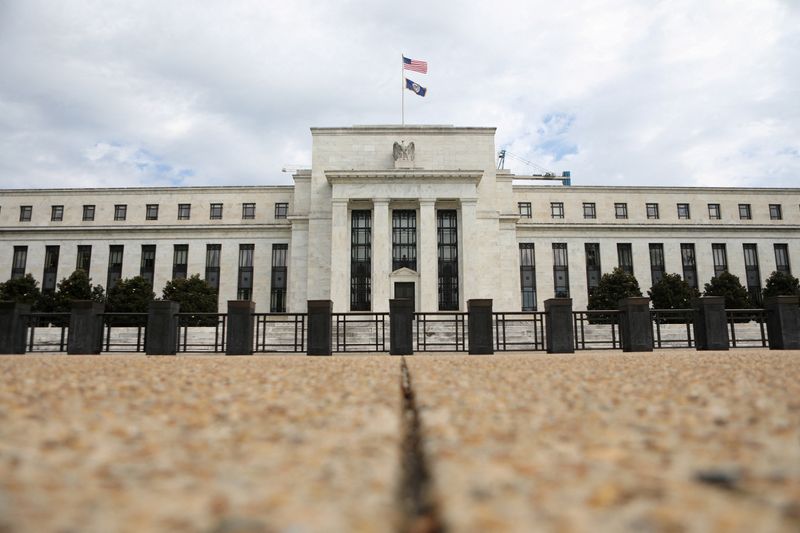(Reuters) - A tumultuous year for financial markets is entering the home straight, with Britain battling a self-inflicted crisis and markets pouring over U.S. jobs data to determine how much of an impact Fed hikes are having on the U.S. economy.
Currencies plumbing multi-year lows in Australia and New Zealand are ramping up pressure on policymakers there, and strong showing by incumbent Jair Bolsonaro in Brazil's elections will see the country heading for a second round later this month.
Here's a look at the week ahead in markets from Kevin Buckland in Tokyo, Ira Iosebashvili in New York, and Dhara Ranasinghe, Marc Jones and Karin Strohecker in London. Graphics by Vincent Flasseur and Sumanta Sen.
1/ KAMI-KWASI?
The government of British Prime Minister Liz Truss was forced on Monday into a humiliating U-turn, reversing plans to cut the highest rate of income tax that helped to spark a rebellion in her party and turmoil in financial markets.
The news briefly lifted the pound, though it is very unlikely this will end the pressure on Britain's financial markets.
Britain is at the centre of an economic firestorm, triggered by Kwarteng's Sept. 23 fiscal plan that spooked markets with its unfunded tax cuts. Sterling hit record lows, and surging bond yields forced the Bank of England (BoE) to intervene to stem a market rout.
The BoE's pledge to buy $69 billion of long-dated gilts has calmed markets for now, but it's too soon to say the rout is over. And buying bonds at a time when the BoE is hiking rates to contain inflation could hurt its credibility.
The IMF, among others, has weighed in on UK events and their impact globally. That leaves the spotlight firmly on Kwarteng.
Graphics: UK government bond yield spread UK government bond yield spread https://graphics.reuters.com/BRITAIN-MARKETS/lbvgnqgwrpq/chart.png
2/ LABOUR OF LOVE
U.S. jobs data on Oct. 7 will show whether the Fed's rate hike barrage is finally making an impact.
Past employment data suggested the economy was humming along despite several jumbo sized rate increases — evidence usually corroborated by strong inflation readings a few weeks later.
Another such report for September could help bolster the case for even more hawkishness from the world's top central bank, potentially roiling markets already bruised by worries over how high rates could soar in a bid to tame the worst inflation in forty years. Conversely, signs of rapidly deteriorating jobs growth could fuel worries that aggressive Fed tightening is pushing the economy towards a recession.
Economists polled by Reuters expect the United States to have created 250,000 jobs last month.
Graphics: Non-farm payrolls https://graphics.reuters.com/GLOBAL-MARKETS/lgvdwrlqbpo/chart.png
3/ DROPPING DOWN UNDER
The freefall in antipodean currencies to multi-year lows is piling pressure on central banks to deliver tighter policy.
For Australia's Reserve Bank, bets are fifty-fifty for a half-point or quarter-point hike on Tuesday. Traders fully price another half-point rate increase by the Reserve Bank of New Zealand on Wednesday and lay 1-in-5 odds on a 75 basis point bump.
New Zealand was first out of the gate among developed markets a year ago, while Australia has delivered one of the most aggressive campaigns in its history.
But accelerating policy tightening elsewhere, particularly in the United States, has cut into the yield advantage. With the Aussie and Kiwi both hyper-sensitive to swings in risk sentiment, policymakers may have little ability to arrest the slide.
Graphics: Hiking aggressively https://graphics.reuters.com/GLOBAL-MARKETS/THEMES/klpykxdglpg/chart.png
4/ THE BOYS FROM BRAZIL
The second round of Brazil's presidential campaign kicks off after right-wing President Jair Bolsonaro outperformed polling and deprived leftist former President Luiz Inacio Lula da Silva of an outright victory in the first round of voting on Sunday.
The unexpectedly strong showing by Bolsonaro on Sunday dashed hopes for a quick resolution to the deeply polarized election in the world's fourth-largest democracy.
Politics can be febrile in the region. An assassination attempt in Argentina and spurts of election-linked violence in Brazil are the latest signs of growing political strife. Investors are looking for a calm transition as Bolsonaro lays the groundwork to contest a defeat, but Brazil's institutions have closed ranks to guarantee the integrity of the vote.
Graphics: Real gains https://graphics.reuters.com/GLOBAL-MARKETS/gkvlgrxzwpb/chart.png
5/ BUCKLE UP
The last few months have rained yet more pain down on financial markets, meaning this year is firmly on course to be the most painful ever for anyone lucky enough not to have experienced World War II, unless they had all their chips on king dollar.
Free and easy central banks have morphed into inflation-fighting machines. Another 5% has been lopped of world stocks since June, oil has slumped more than 20% and Japan and Britain have both had been forced into currency or bond interventions.

Whether the next few months will be any better is no easy call. While there are some signs global inflation might be peaking, major central banks look stuck on the rate hike hamster wheel. Geopolitics will continue to be high on the agenda, with China's Communist Party Congress getting underway in October, while Russia's nuclear threats and annexation of Ukraine's territory have marked the start of a new phase in the seven month old conflict.
Graphics: Global markets - Q3 2022 https://graphics.reuters.com/GLOBAL-MARKETS/zdpxolrzdvx/chart.png